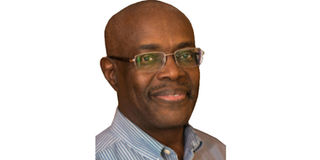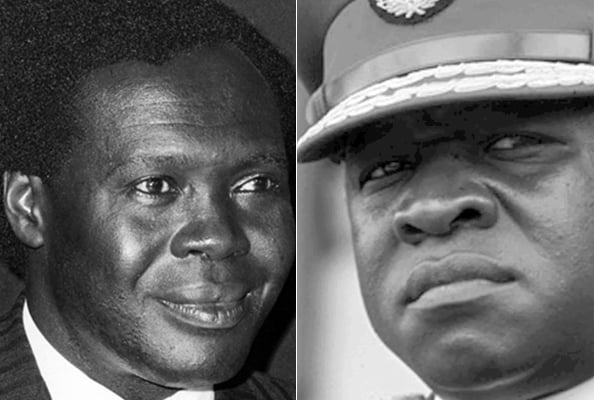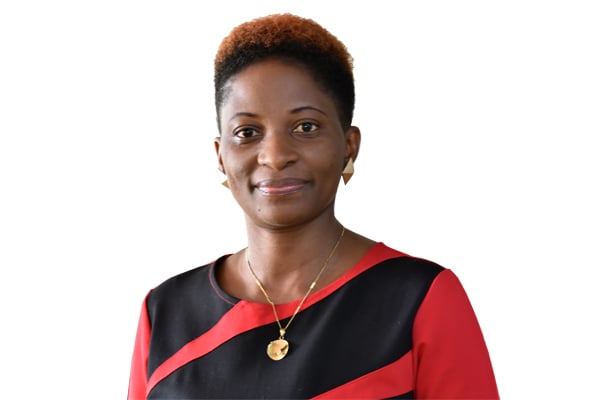Prime
Remembering Uganda’s first English news reader

Author: Muniini K. Mulera. PHOTO/FILE
What you need to know:
- Ekodeu started his public service in the 1950s in Teso District.
Dear Tingasiga:
Peter William Ekodeu would have turned 88 this year. Like many who played significant roles in independent Uganda’s early history, Ekodeu is largely forgotten by the country that he helped shape and served with honour.
READ ABOUT: The 20-year journey of FM radio in Uganda
Born on October 21, 1934, in Soroti, Teso to Elizabeth Aanyu, Ekodeu was the son of Enoka Okello of Kangodo, Serere, son of Ekia and Ibia of Kobuin, Ngora, son of Kada, a hunter from Pallisa. They belonged to the Idokoria clan, believed to have descended from the Igoria, one of the six major clans of the first generation Iteso that originated from Djibouti thousands of years ago.
Ekodeu started his public service in the 1950s in Teso District. While serving as District Information Officer in 1959, Ekodeu was transferred to the newly formed Uganda Broadcasting Services in Kampala, under the personal directive of Sir Frederick Crawford, the British Governor of Uganda. Ekodeu replaced an Englishman called Simpson and became the first African English news reader in Uganda.
In 1966, Ekodeu became Assistant Controller of Programmes and later Controller of Programmes at Radio Uganda. It was Ekodeu who added Ateso to Ugandan language broadcasts.
He was appointed Under Secretary in the Ministry of Information, Broadcasting and Tourism in January 1970. Four years later, in 1974, he was seconded to Voice of Uganda as Managing Director, a position he held until May 1976 when Idi Amin suddenly retired him “in public interest”. Ekodeu retired to private life in Serere, Teso.
In the early 1980s, he served on a few corporate boards, but he never returned to the civil service. Later, he agreed to serve as the RC III vice-chair in his sub-county of Olio, a role that made him a marked man to the Uganda People’s Army (UPA) rebels. On July 1, 1987, while on his way from Serere to Soroti, Ekodeu was ambushed and killed by UPA insurgents, allegedly for collaborating with the National Resistance Movement government.
On the thirty-fifth anniversary of Ekodeu’s murder, his son Tony William Ekodeu, an Executive IT Architect with IBM in Canada, wrote a moving tribute that is a perfect celebration of one our great pioneers.
“I never questioned if my father loved me because he made it so obvious. Papa, as we called him, enjoyed humor, loved stories, and loved to laugh. He would tease us or tell funny stories that made us buckle over with laughter. I think his distinguishing mark was in words and language. Although he spoke Swahili and Akokolemo (a Luo dialect spoken by the Kumam people), and understood Luganda and Rutooro, his fortes were English and Ateso. His mastery of those two languages was instrumental in his stellar career in public communication and broadcasting.
“Papa was incredibly patient, yet when his patience ran out, his rebuke could be terrifying. I recall only one incident when he laid his hand on any of us. He always used his voice. That one incident was back in 1975 at 12 Philip Road, Kampala, where we lived at the time. On one morning, one of my kid brothers and I were up early, playing in our bedroom, jumping up and down on our springy beds and making noise. Father was trying to sleep in the next room. We had always been warned not to make noise when ipolok (elders) were still asleep. Suddenly, our door swung open.
In came Father, in his vest, with a belt in his hand. We instantly disappeared under our blankets. Papa proceeded to whip us with his belt. Thankfully, the blankets provided effective cushioning. He didn’t say a word. Just left. Silence fell in the house for the next 2 hours.
“I have fond memories of Papa. From teaching me how to ride a bicycle at age five, to driving me back home after I had secretly hidden in the back of his car all the way to his work to surprise him. From swimming lessons at the Kampala International Hotel, to Parents’ Day visits in boarding school. From long rides in the back of his sitting-room style Toyota Stout pickup truck, to standing beside him in church and listening to his baritone voice as he sang hymns.
“From learning how to clean and operate his hunting gun, later joining him on some hunts for atapeng oitela (guinea fowl in the wild), to sitting with him under the moonlit sky in Serere as he enjoyed his favorite drink, ajon (a local millet brew) and explaining to me how radio transmission works. From accompanying him to the thickets as he showed me the boundaries of his land, to playing omweeso with him.
From the many parties we hosted at home, to those we were invited to, with plenty of food, drink and akoogo (thumb piano) music & dance. From his unsuccessful attempt to get me onto an Owiny ki Bul bus, to the last time I waved goodbye to him on Dec 26, 1986 as I left to go off to Makerere university.
“One of my favorite childhood memories is when, one evening, he invited me to accompany him to his office at the then Voice of Uganda. It was late, about 9 pm. We went to the printery where the next day’s paper was being printed. The place was a busy and noisy operation. Machines everywhere were churning out pages and men in overalls manning them. While Papa talked with the workers, he let me walk around by myself but strictly forbade me from touching anything. I wandered around and gave myself a tour of what looked like a forest of huge machines. Later, he came to me and began to explain, in simple terms, what each machine did and how the whole process worked. To an 8-year-old, it was an awesome experience.
“One of the most important lessons I learned from Papa was self-respect. Even after he had been beset by a series of unfortunate incidents and had suffered major setbacks in life, Papa maintained a healthy sense of self-esteem. We fell on hard times, but Papa never allowed himself to drown into negativity and self-pity. He was always measured in everything he did and carried himself with dignity. He was never loud, rambunctious, vengeful, pompous, or boastful. A true gentleman.
“Perhaps that’s why his brief and half-hearted attempt at politics failed. He just wasn’t wired for the rough and tumble of Ugandan politics. He stuck to his convictions even in the face of grave danger. I am told he declined a friend’s offer to help him escape into exile in 1976 when Amin’s men were hunting for him. He argued, why should he run away when he had done nothing wrong? “I feel so grateful to have had as much time with my father as I did. I think of him every once in a while and wonder how I would be relating with him in my adulthood. I will forever remember having the most incredible dad. Papa eyalama noi!”
Muniini K Mulera is a medical doctor.




